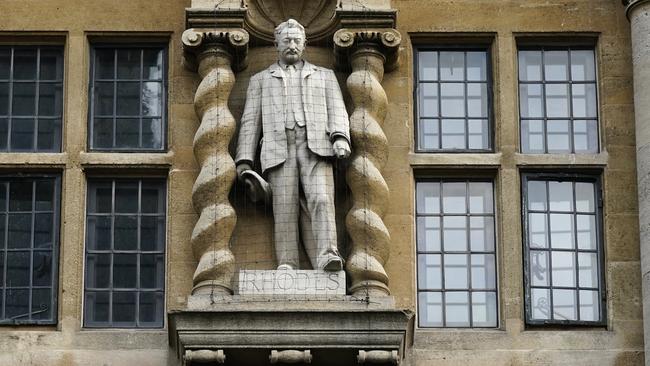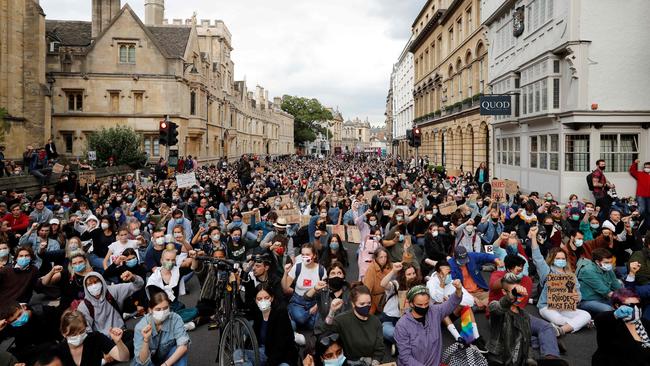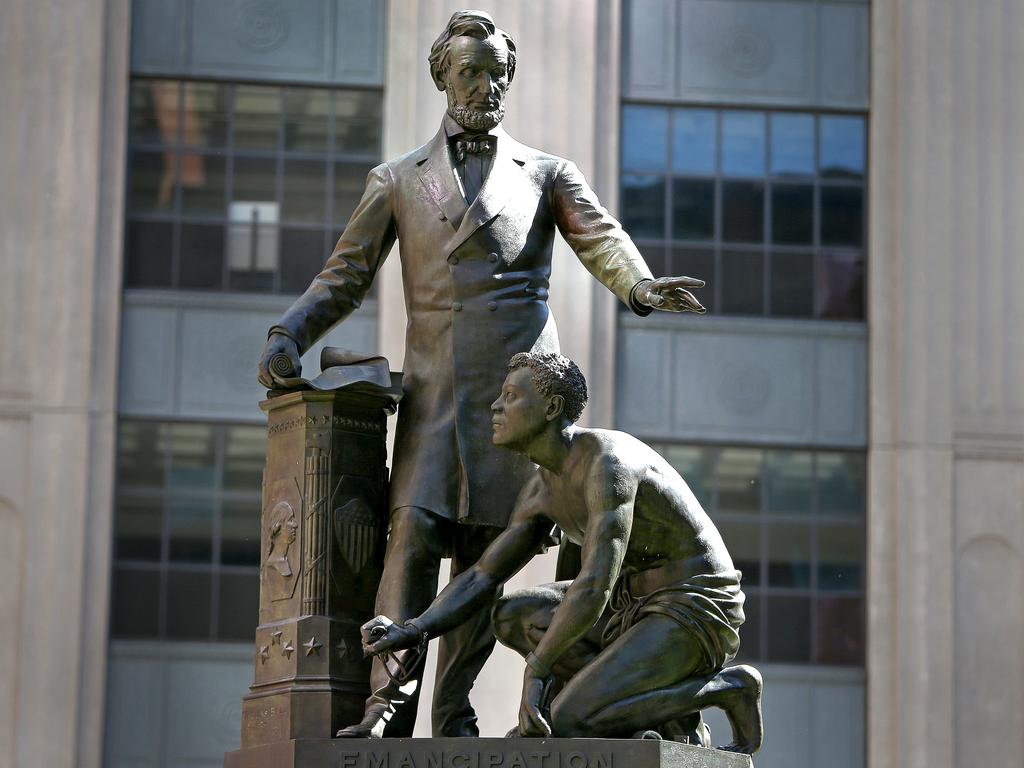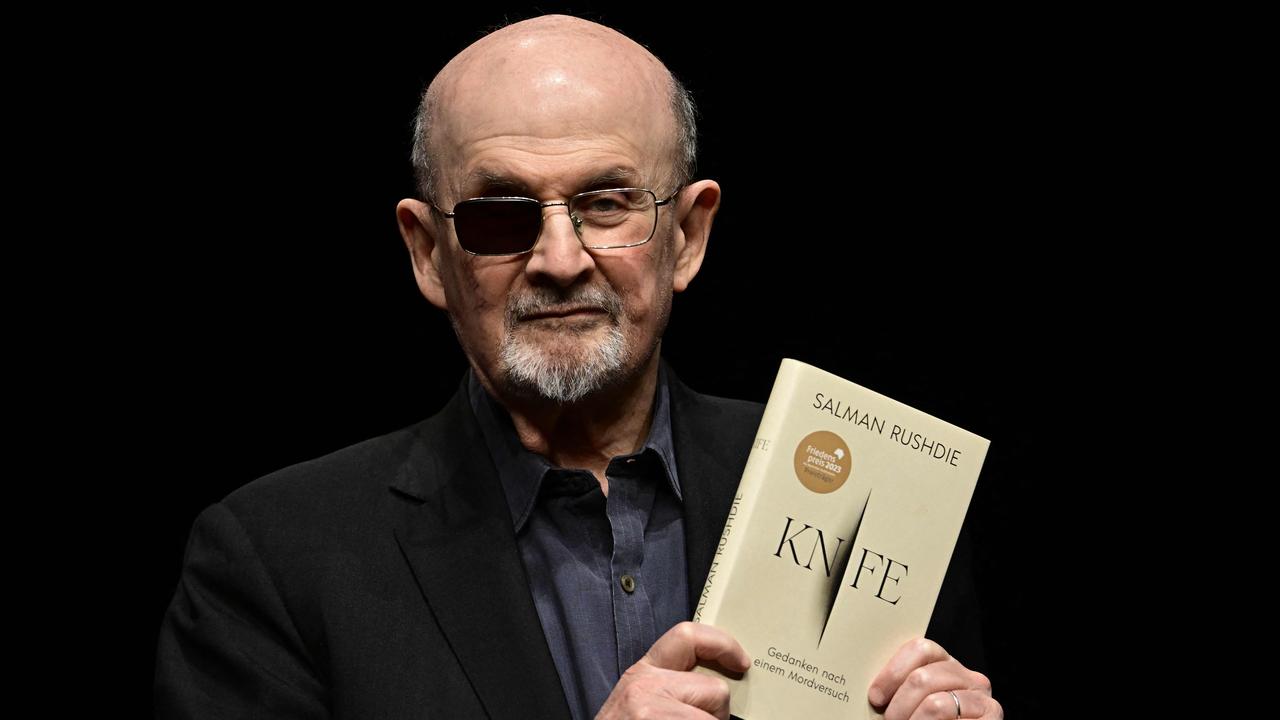Fall of Rhodes statue at Oxford University blocked, activists fume
The decision to halt the removal of the Cecil Rhodes statue at Oxford has been condemned as ‘glorifying genocide and imperialism’.

The statue of Cecil Rhodes at Oxford University will not fall after a change in government policy to protect contested monuments prompted a U-turn by officials at Oriel College.
The decision to keep the statue of the Victorian mining magnate and empire builder on the college’s facade came despite the decision by an independent commission yesterday to back the college authorities’ intention to remove it.
The governing body said the volte-face was down to “regulatory and financial challenges” and the government’s recently introduced “retain and explain policy”, which will be backed by legislation and says that statues can only be removed in the most exceptional circumstances.
The decision was welcomed yesterday by Gavin Williamson, the education secretary, who tweeted: “We should learn from our past, rather than censoring history, and continue focusing on reducing inequality.”
Sensible & balanced decision not to remove the Rhodes statue from Oriel College, Oxford - because we should learn from our past, rather than censoring history, and continue focussing on reducing inequality.
— Gavin Williamson (@GavinWilliamson) May 20, 2021
Thanks to all of you who emailed the Rhodes Statue Commission. In rejecting the recommendation to remove the statue, Oriel College states that over 1,000 people wrote in and the majority were in favour of keeping the statue. This gave them a justification. Well done everyone ðŸ‘
— Save Our Statues (@_SaveOurStatues) May 20, 2021
Congratulations to Oriel College for deciding not to remove the statue of Cecil Rhodes. This is a victory for common sense over the woke Taliban. We cannot cleanse our past of historical figures whose views we now find distasteful and the attempt to do so...
— Toby Young (@toadmeister) May 20, 2021
However, Rhodes Must Fall protesters, who led calls for the statue’s removal, accused the college of choosing to “glorify genocide and imperialism” and vowed to continue the fight. Shaista Aziz, a Labour councillor in Oxford and member of the commission that advised the college, said she was “disappointed” that it had “failed to listen”.
Oriel College indicated that its decision was final, though it reaffirmed its preference for removal.
It committed itself to implementing other recommendations by the commission geared to providing contextual information on Rhodes, and increasing diversity.

The move was announced after the publication of a report by the independent commission, convened at Oriel’s behest last summer after the governing body expressed its wish to remove the statue and a plaque to Rhodes, a college benefactor.
Protesters had called for the statue’s removal for several years because of Rhodes’s activities as an imperialist in Africa and his views on race.
In a ten-month inquiry, the commission received evidence from experts and reviewed more than a thousand written contributions from students, alumni and the public. Most favoured keeping the statue. The commission nevertheless supported the college’s wish for removal, saying this was its majority view.
However, it noted that getting planning permission to remove the memorials was likely to be expensive and complex because government policy on such contested historic statues and sites was to “retain and explain” them.
The policy, announced in January, means that any attempt to remove the statue is likely to be blocked after incurring considerable costs.

The college said: “In light of the considerable obstacles to removal, Oriel’s governing body has decided not to begin the legal process for relocation.”
Instead it would focus on putting its relationship with Rhodes in context and improving equality and diversity.
The measures will include creating the office of tutor for equality, initiatives to boost ethnic minority student recruitment, and fundraising for scholarships for those from southern Africa. Oriel said it would offer context at the site and online.
Lord Mendoza, the provost of Oriel, said: “It has been a finely balanced debate . . . We understand this nuanced conclusion will be disappointing to some, but we are now focused on practical actions aimed at improving outreach.

Rhodes Must Fall said: “Oriel has chosen to reinscribe that violent colonial vision on to our community. We will continue to fight for the fall of this statue.”
Dr Samir Shah, vice-chairman of the History Matters Project at Policy Exchange, said: “Oriel has rightly decided not to spend time on a fruitless effort to change the past, but to plough resources into trying to change the future.”
Robert Jenrick, the communities secretary, said: “We should protect our heritage by retaining and explaining the past rather than censoring our history, and retaining the statue is in keeping with our changes to planning law to protect historic monuments.”
The Times






